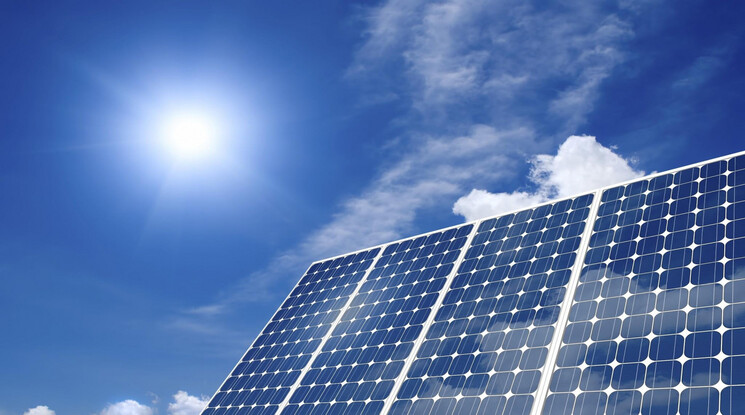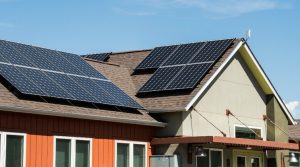In recent years, solar energy has emerged as a promising solution to combat climate change and reduce dependence on fossil fuels. Virginia, with its abundant sunshine, is an ideal candidate for harnessing solar power. However, as with any investment, the question remains: Is solar financing Virginia still worth it in Virginia? In this blog post, we will explore the various aspects of solar financing in the state and analyze whether it continues to be a smart choice for homeowners and businesses.
The Solar Panels in Virginia
Virginia has made significant strides in promoting solar energy in recent years. State policies and incentives, along with falling solar panel Virginia costs, have contributed to the growth of the solar industry. The Solar Energy Industries Association (SEIA) reports that Virginia had over 3,400 megawatts of solar capacity installed by the end of 2020, enough to power approximately 410,000 homes. This growth demonstrates the state’s commitment to renewable energy.
Government Incentives For Solar in Virginia
One of the primary reasons solar financing remains attractive in Virginia is the availability of government incentives. The federal Investment Tax Credit (ITC) allows homeowners and businesses to claim a significant portion of their solar installation costs as a tax credit. In addition to the federal incentive, Virginia offers a state tax credit of up to 25% of the total solar installation cost, further reducing the financial burden.
Net Metering
Virginia also has a robust net metering program in place. Net metering allows solar installers virginia to sell excess electricity generated by their solar panels back to the grid, effectively reducing their electricity bills. In some cases, homeowners may even receive credits for the excess energy they produce. This feature makes solar financing an attractive option, as it enables homeowners to recoup their investment over time.
Declining Solar Panel Costs
The cost of solar panels has significantly decreased over the past decade, making solar financing more accessible and cost-effective for homeowners and businesses. As technology continues to advance, solar panels have become more efficient and affordable, leading to a shorter payback period for solar installations in Virginia.
Solar Energy in Virginia
One of the most compelling reasons to invest in solar financing in Virginia is the potential for substantial energy savings. Solar panels generate electricity from the sun’s energy, which can significantly reduce or even eliminate your monthly electricity bills. Over time, the savings on your energy bills can offset the initial cost of solar installation, making it a financially sound choice.
Environmental Benefits
Beyond financial incentives, solar financing in Virginia provides environmental benefits. Solar energy is clean and renewable, producing no greenhouse gas emissions or air pollution. By investing in solar panels, you contribute to a cleaner and healthier environment, reducing your carbon footprint and helping combat climate change.
Resilience and Energy Independence
Solar panels can provide a degree of energy independence and resilience in the face of power outages. With a battery storage system, you can store excess solar energy and use it during emergencies or blackouts. This added security is especially valuable in areas prone to extreme weather events.
Solar Financing Options
To make solar financing more accessible, various financing options are available in Virginia:
Solar Loans: Many financial institutions offer low-interest loans specifically for solar installations. These loans often have favorable terms and allow homeowners to spread the cost of their solar system over several years.
Solar Leases and Power Purchase Agreements (PPAs): These arrangements allow homeowners to install solar panels with little to no upfront cost. Instead, they pay a fixed monthly fee or purchase the electricity generated by the solar system at a predetermined rate.
Property Assessed Clean Energy (PACE) Financing: PACE programs enable homeowners to finance their solar installations through a property tax assessment, spreading the cost over an extended period.
Cash Purchase: For those who can afford it, paying for a solar system upfront offers the quickest return on investment and the greatest long-term savings.
Evaluating the Return on Investment
When considering solar financing in Virginia, it’s essential to evaluate the return on investment (ROI). Factors that influence ROI include the cost of installation, available incentives, energy savings, and the duration of your financing arrangement. In most cases, homeowners can expect to recoup their initial investment within a few years and enjoy years of energy savings and environmental benefits.
Is Solar financing Virginia still worth it in Virginia? The answer is a resounding yes. With a supportive policy environment, government incentives, declining solar panel costs, and numerous financing options, solar energy remains an attractive and financially sound choice for homeowners and businesses in the state. Moreover, the environmental benefits and energy savings make solar financing not only a wise financial investment but also a responsible choice for a sustainable future. So, if you’re considering going solar in Virginia, now is a great time to take the leap and reap the rewards of clean, renewable energy.





I didn’t think Virginia offered tax credits to help cover the installation cost.